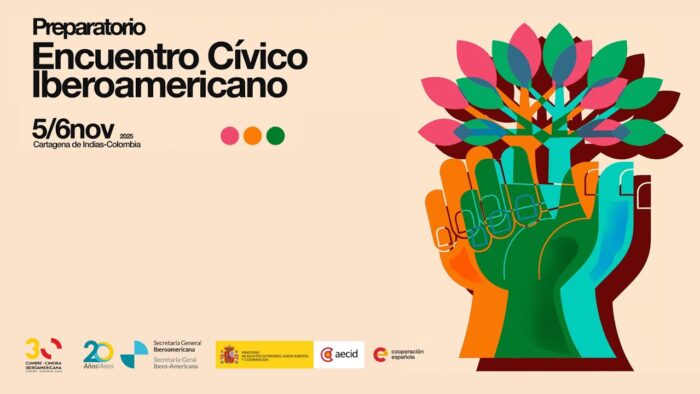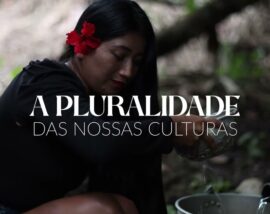Organization: RET International
Country: Panama
Closing date: 17 May 2017
RET International es una organización independiente, imparcial, de carácter no gubernamental, sin filiación partidista o religiosa, con sede en Ginebra – Suiza. Fundada a finales del año 2000 por la Sra. Sadako Ogata, en ese entonces Alta Comisionada de las Naciones Unidas para los Refugiados – ACNUR, con el propósito de responder a las necesidades educativas de jóvenes afectados por conflictos, desastres, desplazamiento, violencia y otras condiciones de vulnerabilidad en el mundo.
En RET estamos comprometidos con la educación, bienestar, estabilidad emocional y autonomía de la población joven más vulnerable, desarrollando procesos que no sólo se reducen a una intervención de emergencia, sino que buscan reducir desigualdades a través de una completa estrategia de desarrollo para jóvenes y adolescentes en condiciones de vulnerabilidad.
En la actualidad, una de las regiones en la cual RET tiene presencia es América Latina y el Caribe, con acciones enfocadas en Colombia, Ecuador, Panamá, Costa Rica, Venezuela y Belice. RET desarrolla programas en la región para el fortalecimiento de sistemas educativos, en educación formal y no formal, educación en situaciones de emergencia, reducción del riesgo, orientación laboral/ocupacional para jóvenes, acompañamiento en actividades productivas y emprendimientos, prevención de violencia, apoyo psicosocial promoviendo habilidades para la vida, capacitación a docentes, preparación de jóvenes para ingresar a la universidad y gestión para el desarrollo de política pública, principalmente, propiciando la participación activa de comunidades, con perspectiva de género y enfoque de derechos.
En relación al desarrollo de su Oficina Nacional en Panamá, RET está convocando un(a):
Descripción del Puesto: Responsable de Asistencia Humanitaria
Adscrito a: Oficina Nacional de Panamá.
Reporta a: Oficial del Proyecto.
Cobertura: Provincias de Panamá, Panamá Oeste y Colón.
Objetivo de la posición: Construcción de Resiliencia en las familias refugiadas y solicitantes de asilo participantes de nuestros proyectos a través de la orientación, acompañamiento y seguimiento de los servicios brindados en Asistencia Humanitaria
Acciones clave de desempeño:
§ Realizar entrevistas a las familias en necesidad de protección internacional en su primer contacto con la organización.
§ Brindar orientación individual y familiar sobre derechos, deberes y acceso a servicios en Panamá.
§ Levantar la línea de base y elaborar diagnósticos de las familias participantes.
§ Diseñar e implementar acciones de respuesta humanitaria para atender las necesidades básicas de los participantes en cuanto a alimentación, salud y vivienda.
§ Apoyar en el diseño, implementación y dar seguimiento a estrategias para el acceso a la salud de miembros de familias participantes en los centros hospitalarios y ambulatorios.
§ Realizar visitas domiciliarias planificadas y de forma periódica, para valorar la pertinencia y/o el avance de las soluciones dadas a los vacíos identificados.
§ Realizar valoraciones y recomendaciones sobre la situación de entrada para la remisión de participantes al componente de medios de vida.
§ Facilitar talleres de formación del componente de Asistencia Humanitaria.
Además, al igual que todo el equipo RET, deberá:
§ Realizar informes de actividad, mensuales, trimestrales y de cierre, según orientaciones dadas.
§ Co-facilitar talleres y acompañar actividades de otros componentes.
§ Elaborar/recopilar los medios de verificación y cumplir con los instrumentos y herramientas metodológicas y de reporte requeridos para la cabal ejecución del proyecto.
§ Conocer y aplicar las herramientas y procedimientos técnicos, logísticos, administrativos y operativos que garanticen la oportuna y efectiva realización de las actividades.
§ Monitorear en forma periódica y sistemática el nivel de ejecución de indicadores cuantitativos y cualitativos específicos de su componente; medir el desempeño contra las líneas base; identificar y alertar sobre posibles riesgos; identificar y reportar ágilmente cualquier inconsistencia y proponer acciones correctivas; medir el grado de satisfacción de los/las participantes y pronosticar plazos, costos y calidad reales contra los planificados.
§ Identificar y reportar buenas prácticas y lecciones aprendidas en su componente a todo lo largo del ciclo del proyecto.
§ Cumplir rigurosamente lo establecido en las políticas, manuales y procedimientos internos de la organización.
§ Otras tareas vinculantes a la ejecución de los proyectos de RET en Panamá.
Perfil de Habilidades y Actitudes:
§ Actitud proactiva.
§ Comprensión y valoración positiva de la diversidad humana.
§ Habilidades para el trabajo en equipo y para articular acciones interdisciplinarias.
§ Deseos y disponibilidad para aprender.
§ Habilidad para entablar relaciones interpersonales positivas.
§ Flexibilidad para impulsar procesos simultáneos y desempeñarse en escenarios cambiantes.
§ Habilidad para organizar el trabajo bajo presión y con estrictos plazos de cumplimiento.
§ Apertura para la flexibilidad de horarios.
§ Capacidad de análisis y resolución de conflictos.
§ Habilidad de transformar los retos en oportunidades, proponiendo alternativas de solución desde una visión positiva y constructiva.
§ Ser factor activo en la construcción y mantenimiento del buen clima organizacional.
§ Sólidas competencias en tecnologías de la información: ambiente Windows y Microsoft Office (Word, Excel, PowerPoint) uso de internet, redes sociales y correo electrónico.
Cualidades / Experiencia:
Educación: Título universitario en Trabajo Social o áreas afines.
Experiencia: Cinco (5) años de experiencia comprobable ejerciendo funciones similares y trabajando directamente con población en situación de vulnerabilidad.
Se valorará conocimiento y experiencia laboral comprobable en:
§ Implementación de proyectos de cooperación bajo la metodología de Marco Lógico.
§ Trabajo en organizaciones no gubernamentales.
§ Diseño y facilitación de talleres de formación en temas relevantes.
§ Trabajo previo con población y equipos de proyecto interdisciplinarios y multiculturales.
Idiomas: Excelente español (hablado y escrito). Se valorará el manejo de inglés.
Indispensable: Referencias verificables de trabajos anteriores; disponibilidad inmediata y dedicación exclusiva.
How to apply:
Recepción de postulaciones:
Personas interesadas en postular deben enviar un correo electrónico, antes de las 24:00 (hora de Panamá) del miércoles 17 de mayo de 2017, a la dirección l.degracia@theret.org indicando en el asunto: “Aplicación a Responsable de Asistencia Humanitaria”** y adjuntando la siguiente documentación:
1) Hoja de vida, incluyendo datos actualizados de supervisores/as anteriores que permitan verificar las referencias laborales.
2) Carta de motivación que especifique expectativa salarial.
Nota: se evaluaran exclusivamente las postulaciones que cumplan con toda la documentación requerida. Se contactará vía email únicamente a las personas que conformen la lista corta. Las entrevistas se realizarán entre el 22 al 24 de mayo de 2017.


